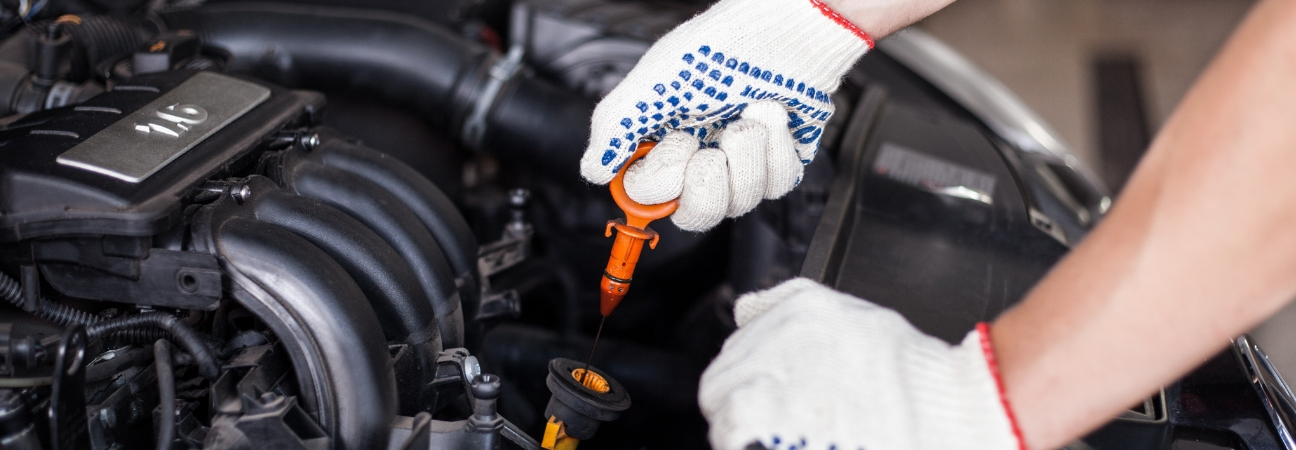All Categories
Featured
Liable for synchronizing the turning of the crankshaft and camshaft, the timing belt guarantees the engine's shutoffs open and close at the correct times throughout the combustion process. If the timing belt stops working, it can result in severe engine damages.
What Is a Timing Belt? The timing belt is a long, toothed rubber or composite belt that links the crankshaft to the camshaft(s) in an interior combustion engine. Its task is to keep the engine's valves and pistons in sync, making sure the engine runs effectively. The timing belt additionally regulates various other important engine features like the water pump and the power steering pump, depending on the automobile.
![]()
Without the correct timing, the engine's pistons and shutoffs can collide, causing pricey and comprehensive damage. Changing the timing belt on schedule is one of the best ways to guarantee your engine runs at its finest and prevent expensive repair services.
Why Timing Belt Substitute Matters. Preventing Catastrophic Engine Damage: The most significant risk of not replacing a used timing belt is engine failure. If the timing belt breaks while the engine is running, the camshaft and crankshaft can become misaligned, causing the pistons and valves to clash. This can lead to curved shutoffs, damaged pistons, or perhaps a damaged engine. Replacing the timing belt at the recommended intervals is the most effective method to protect against such devastating damages, saving you from the stress and anxiety and high expense of engine repair services or substitute.
![]()
Preserving Engine Efficiency: A timing belt that's in excellent problem makes certain that all engine parts operate in ideal consistency. If the timing belt is put on or extended, it can trigger the engine to lose power, experience harsh idling, or struggle to start. By changing the timing belt consistently, you can keep your engine going for peak effectiveness, which aids keep optimum gas economic situation and efficiency.
Preventing Unexpected Breakdowns: A broken timing belt can create your engine to stop abruptly, potentially leaving you stranded in the middle of a journey. By changing your timing belt on time, you decrease the threat of abrupt break downs that might leave you in a dangerous or troublesome circumstance. Regular maintenance lowers the possibilities of experiencing these kinds of interruptions, aiding you remain on the road longer without stressing over your engine failing.
Economical Upkeep: Timing belt substitute is a lot cheaper than fixing or replacing an engine that's been damaged due to a timing belt failing. While the cost of changing the timing belt may differ depending upon your lorry and its location, it is far a lot more budget friendly than the prices connected with significant engine repairs or substitutes. Changing your timing belt at the recommended intervals can conserve you a substantial amount of cash over the long term by preventing damages to your engine.
When Should You Replace Your Timing Belt? The timing belt doesn't last permanently, and most producers advise replacing it between 60,000 and 100,000 miles. The exact timing depends on your car's make, model, and driving conditions, so it's important to inspect your owner's manual for certain advice.
Indicators that your timing belt may require attention include unusual engine noises (such as a piercing whining or ticking sound), trouble starting the engine, or a decline in engine efficiency. If you observe any one of these indicators, it's crucial to have the timing belt examined by a professional technician.
![]()
Final thought. The timing belt is a tiny yet important part of your engine, and regular substitute is vital to maintaining your car's performance and avoiding costly damages. By remaining on top of timing belt upkeep, you'll ensure your engine operates efficiently, avoid unanticipated malfunctions, and safeguard your cars and truck from major repairs. Watch on your automobile's recommended timing belt replacement timetable, and constantly seek advice from a trusted mechanic to maintain your engine running efficiently for many years to come.
What Is a Timing Belt? The timing belt is a long, toothed rubber or composite belt that links the crankshaft to the camshaft(s) in an interior combustion engine. Its task is to keep the engine's valves and pistons in sync, making sure the engine runs effectively. The timing belt additionally regulates various other important engine features like the water pump and the power steering pump, depending on the automobile.

Without the correct timing, the engine's pistons and shutoffs can collide, causing pricey and comprehensive damage. Changing the timing belt on schedule is one of the best ways to guarantee your engine runs at its finest and prevent expensive repair services.
Why Timing Belt Substitute Matters. Preventing Catastrophic Engine Damage: The most significant risk of not replacing a used timing belt is engine failure. If the timing belt breaks while the engine is running, the camshaft and crankshaft can become misaligned, causing the pistons and valves to clash. This can lead to curved shutoffs, damaged pistons, or perhaps a damaged engine. Replacing the timing belt at the recommended intervals is the most effective method to protect against such devastating damages, saving you from the stress and anxiety and high expense of engine repair services or substitute.

Preserving Engine Efficiency: A timing belt that's in excellent problem makes certain that all engine parts operate in ideal consistency. If the timing belt is put on or extended, it can trigger the engine to lose power, experience harsh idling, or struggle to start. By changing the timing belt consistently, you can keep your engine going for peak effectiveness, which aids keep optimum gas economic situation and efficiency.
Preventing Unexpected Breakdowns: A broken timing belt can create your engine to stop abruptly, potentially leaving you stranded in the middle of a journey. By changing your timing belt on time, you decrease the threat of abrupt break downs that might leave you in a dangerous or troublesome circumstance. Regular maintenance lowers the possibilities of experiencing these kinds of interruptions, aiding you remain on the road longer without stressing over your engine failing.
Economical Upkeep: Timing belt substitute is a lot cheaper than fixing or replacing an engine that's been damaged due to a timing belt failing. While the cost of changing the timing belt may differ depending upon your lorry and its location, it is far a lot more budget friendly than the prices connected with significant engine repairs or substitutes. Changing your timing belt at the recommended intervals can conserve you a substantial amount of cash over the long term by preventing damages to your engine.
When Should You Replace Your Timing Belt? The timing belt doesn't last permanently, and most producers advise replacing it between 60,000 and 100,000 miles. The exact timing depends on your car's make, model, and driving conditions, so it's important to inspect your owner's manual for certain advice.
Indicators that your timing belt may require attention include unusual engine noises (such as a piercing whining or ticking sound), trouble starting the engine, or a decline in engine efficiency. If you observe any one of these indicators, it's crucial to have the timing belt examined by a professional technician.

Final thought. The timing belt is a tiny yet important part of your engine, and regular substitute is vital to maintaining your car's performance and avoiding costly damages. By remaining on top of timing belt upkeep, you'll ensure your engine operates efficiently, avoid unanticipated malfunctions, and safeguard your cars and truck from major repairs. Watch on your automobile's recommended timing belt replacement timetable, and constantly seek advice from a trusted mechanic to maintain your engine running efficiently for many years to come.
Latest Posts
Which Fence Is Right for You: Wood or Vinyl?
Published Jan 07, 25
1 min read
Effortless Bathroom Remodeling with Bath Fitter
Published Jan 07, 25
0 min read
Roofing Excellence in Tinley Park with A-Abel Roofing
Published Jan 07, 25
1 min read